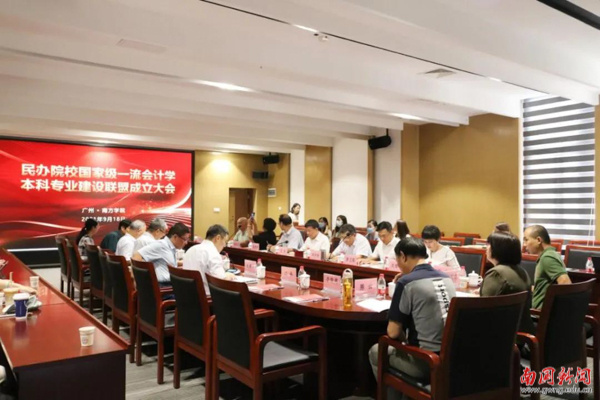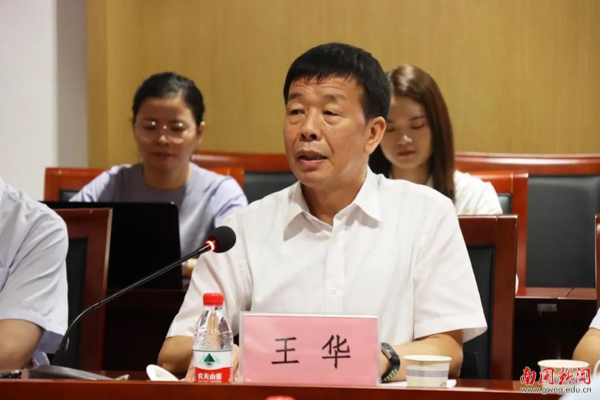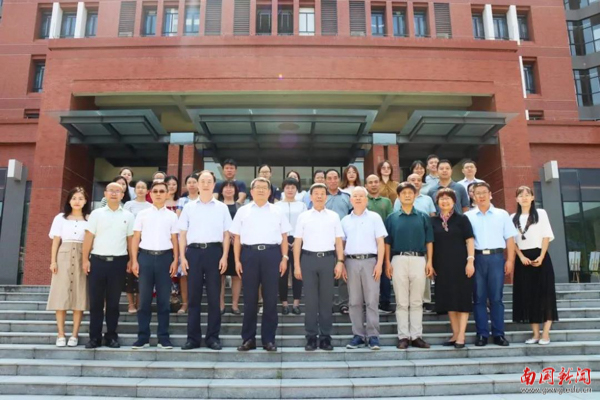Executive President Wang Hua elected chairman of the Alliance of Private Colleges and Universities to Build National First-class Accounting Undergraduate Programs
Recently, the inaugural meeting of the Alliance of Private Colleges and Universities to Build the National First-class Accounting Undergraduate Programs (hereafter as the Alliance) was held in Guangzhou Nanfang College. The meeting discussed and adopted the constitution of the Alliance, the Alliance committee, the advisory committee, the secretariat and the decisions on other important issues. Executive President Wang Hua of South China Business College was elected chairman of the Alliance, and Professor Tan Jinsong, honorary dean of the School of Accounting of Guangzhou Nanfang College, was elected chairman of the advisory committee.

The Alliance of Private Colleges and Universities to Build the National First-class Accounting Undergraduate Programs was initiated and founded by five private colleges and universities, namely: Guangzhou Nanfang College, South China Business School of Guangdong University of Foreign Studies, Guangzhou Huashang College, Dongguan City College and Guangzhou Xinhua College. The presidents, representatives and relevant persons in charge of the founding member colleges and universities attended the inaugural meeting.

Wang Hua addressed the audience at the inaugural meeting. He put forward the requirements on how to play the role of guiding, communicating and promoting the Alliance in its efforts to build national first-class majors as follows: Firstly, the Alliance should lead the efforts in alignment with the Party, conscientiously implementing the Party's education policy, focusing on the important role and mission of the Party guidelines in the development of disciplines and students, and integrating the ethics and politics education with the training of accounting majors. Secondly, the Alliance should commit to immersion-style and culture-oriented education, integrating each college's distinctive culture with disciplinary development, enhancing the elements of ideology, theory, relevance and interest in the courses, and improving the comprehensive quality of student training. Thirdly, the Alliance should improve the height, breadth and depth of the efforts to build the accounting program, consciously integrating the characteristics of each college with their disciplinary development, actively exploring new modes of training accounting students, developing practice-based teaching materials, putting in more resources to build up students’ ability to practise what they have learned, and attracting more talented people to join the faculty. Fourthly, the Alliance should break away from conventional thinking so as to innovate the organizational structure, improve the incentive mechanism, and build organizational and assessment systems that can help the training of students in private institutions into practice-oriented accounting professionals.

Wang Hua hoped that the members would make use of the platform of the Alliance to share information, exchange experiences, discuss issues of operation and cooperate in project development. He asked the audience to offer ideas and support to help decide on the acceptance criteria of program development, so that the task of building national first-class undergraduate accounting programs could be completed as scheduled.